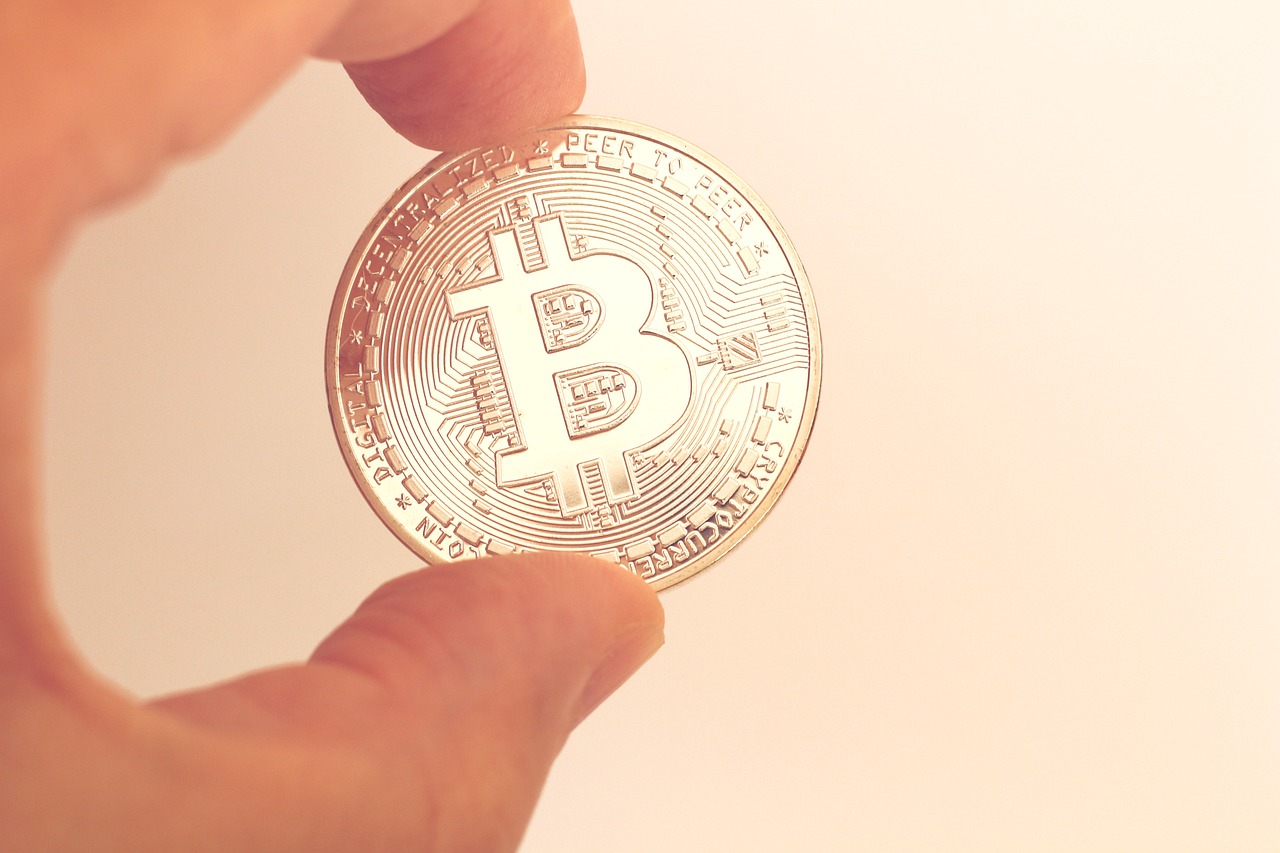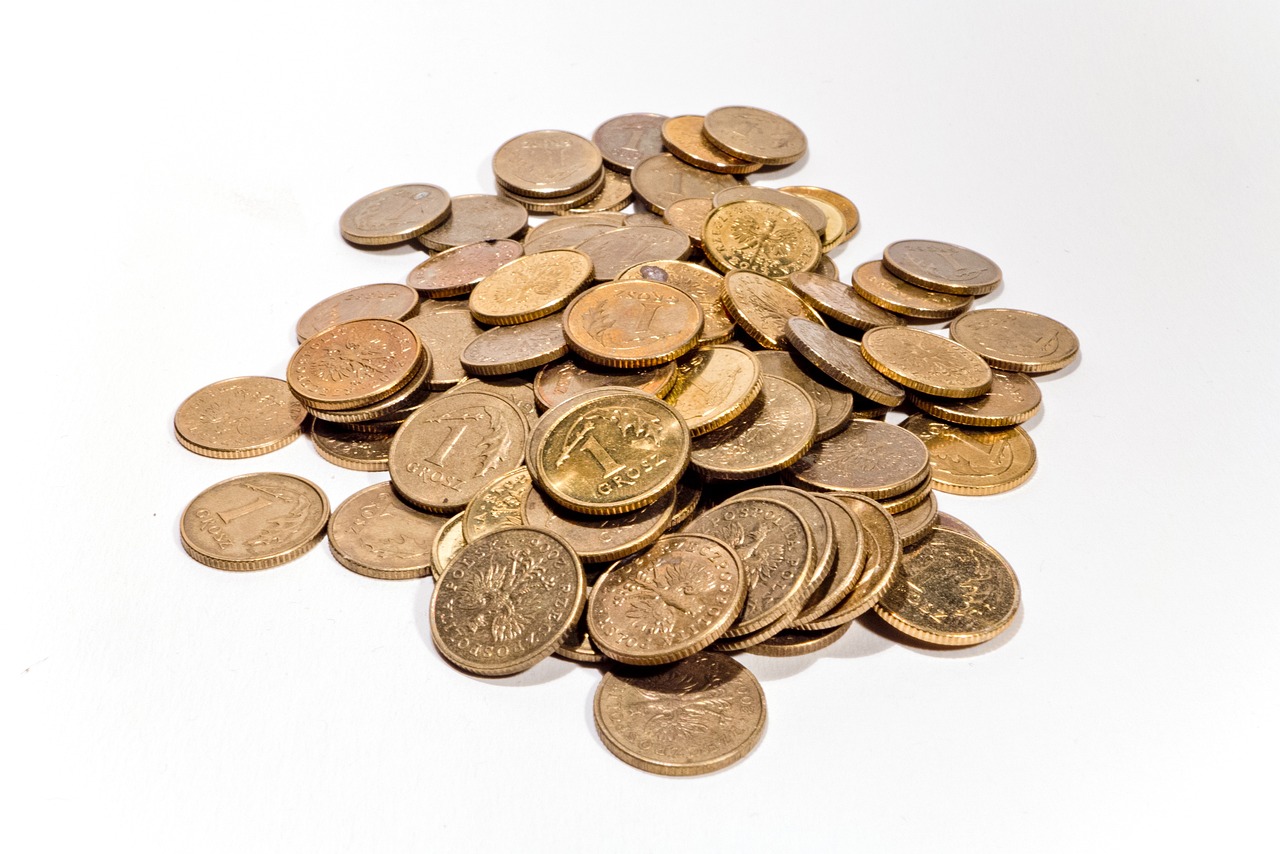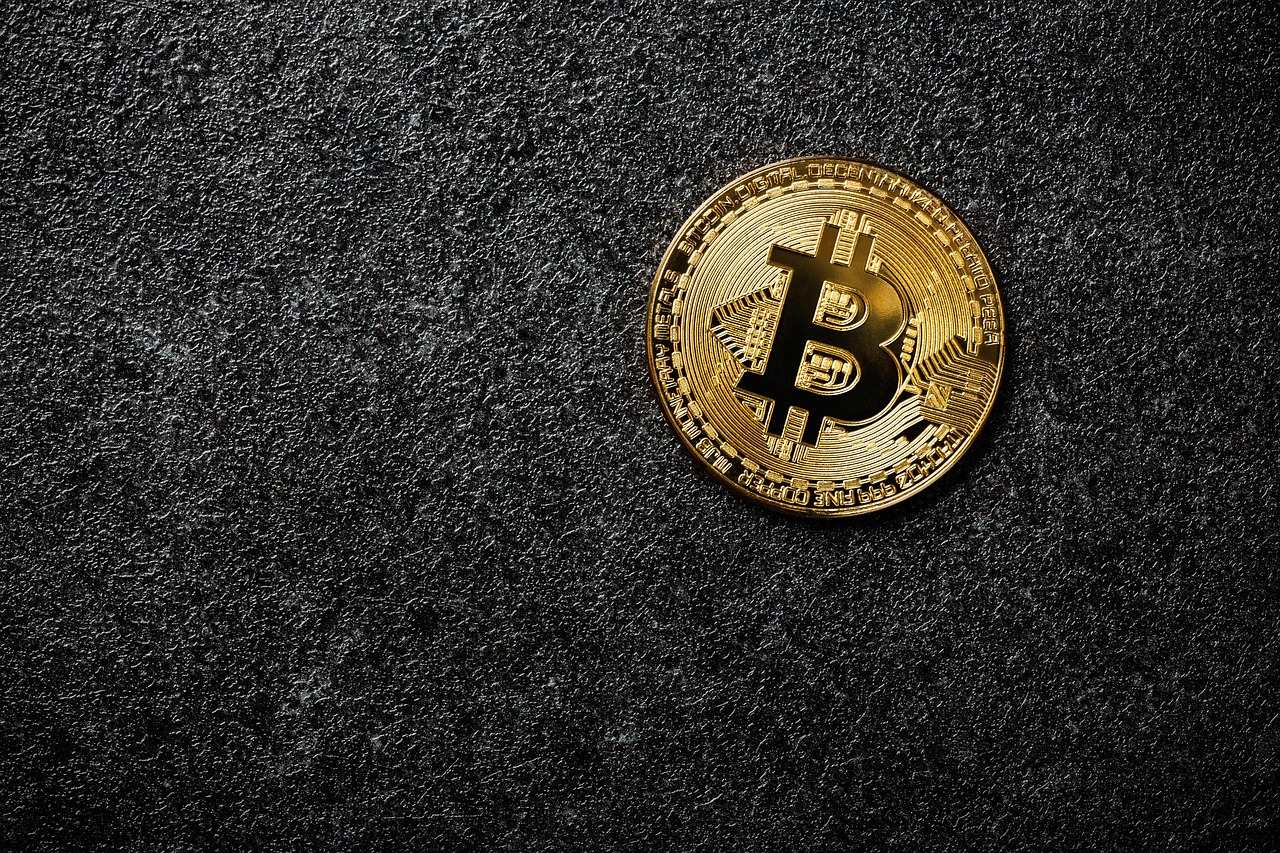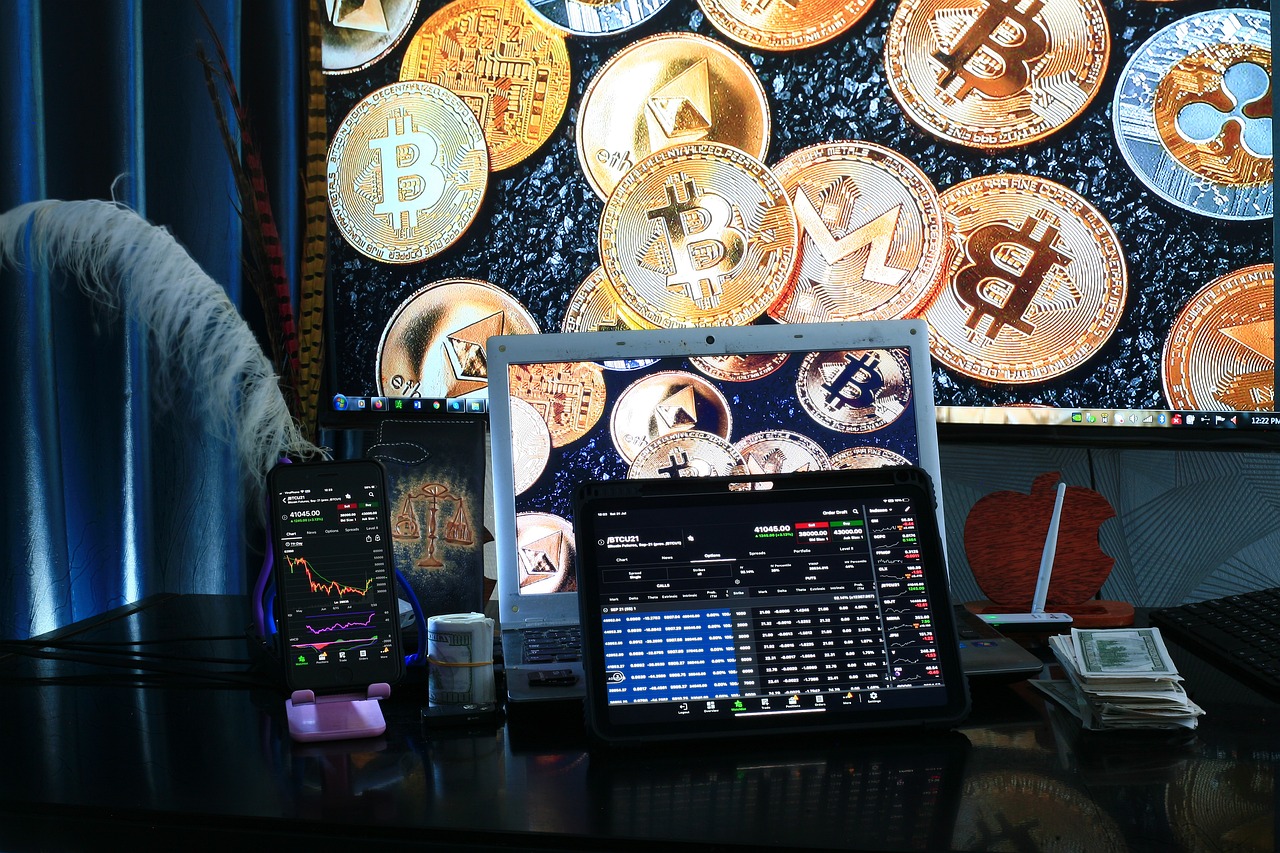Evaluating Market Trends in Privacy Coins
In recent years, the cryptocurrency landscape has seen a significant transformation, particularly in the realm of privacy coins. These digital currencies are designed to enhance user anonymity and ensure transaction confidentiality, making them a hot topic among investors, regulators, and everyday users alike. As we dive into the evolving market trends surrounding privacy coins, it's essential to consider not only their growing popularity but also the challenges and implications they face within the broader cryptocurrency ecosystem.
The allure of privacy coins stems from their ability to provide a level of financial secrecy that traditional currencies cannot offer. With increasing concerns over data privacy and surveillance, many individuals are turning to these coins to regain control over their financial transactions. However, this rise in interest is not without its complications. Regulatory scrutiny is intensifying, and the balance between maintaining user privacy and adhering to legal frameworks is becoming increasingly precarious.
As we evaluate market trends, it’s crucial to recognize the key players in the privacy coin sector. Coins like Monero, Zcash, and Dash are leading the charge, each offering unique features that cater to different user needs. For instance, while Monero is celebrated for its robust privacy features, Zcash provides a flexible approach that allows users to choose between transparent and shielded transactions. This flexibility can be a double-edged sword, as it appeals to a broader audience while still prioritizing user anonymity.
The adoption rates of privacy coins have been fluctuating, influenced by various factors, including market demand and regulatory challenges. Understanding these dynamics is vital for anyone looking to invest in or utilize privacy-focused cryptocurrencies. The landscape is further complicated by the ongoing developments in technology and regulations, which can significantly impact the market performance of these coins.
Moreover, the future outlook for privacy coins remains uncertain. While there are challenges ahead, such as increasing regulatory scrutiny and the potential for government crackdowns, there is also a growing recognition of the importance of financial privacy. As more users prioritize their privacy in financial dealings, privacy coins may experience renewed interest and potential growth.
In summary, the market trends surrounding privacy coins reflect a complex interplay of user demand, regulatory challenges, and technological advancements. As we continue to monitor this evolving landscape, it is essential for investors and users to stay informed about the implications of these trends on the future of privacy-focused cryptocurrencies.
- What are privacy coins? Privacy coins are cryptocurrencies designed to enhance user anonymity and transaction confidentiality, utilizing various cryptographic techniques to obscure transaction details.
- How do privacy coins differ from regular cryptocurrencies? Unlike regular cryptocurrencies, privacy coins prioritize user anonymity and confidentiality, making it difficult to trace transactions or identify users.
- What are some examples of popular privacy coins? Notable privacy coins include Monero, Zcash, and Dash, each offering unique features and privacy mechanisms.
- What challenges do privacy coins face? Privacy coins often encounter regulatory hurdles due to concerns over money laundering and illicit activities, which can impact their adoption and market performance.
- What is the future outlook for privacy coins? The future remains uncertain, but as users increasingly prioritize financial privacy, these coins may experience renewed interest and potential growth.

Understanding Privacy Coins
Privacy coins are a fascinating niche within the cryptocurrency world, designed specifically to enhance user anonymity and transaction confidentiality. Imagine walking through a bustling market where everyone can see your purchases—now, think about how uncomfortable that would feel. Privacy coins aim to create a financial environment where your transactions remain as discreet as a whisper. They utilize a variety of cryptographic techniques to obscure transaction details, making them particularly appealing to users who prioritize privacy in their financial dealings.
At their core, privacy coins leverage advanced technologies to ensure that transaction histories are hidden from prying eyes. Unlike traditional cryptocurrencies like Bitcoin, where transaction details are publicly accessible on the blockchain, privacy coins employ methods such as ring signatures, stealth addresses, and zero-knowledge proofs to shield user identities. This is akin to sending a letter in a sealed envelope rather than posting it on a bulletin board for everyone to read. The result? A financial tool that offers not just anonymity but also a sense of security for users wary of surveillance and data breaches.
As the world becomes increasingly digitized, the demand for privacy-focused solutions grows. Users are becoming more aware of their digital footprints and are actively seeking ways to protect their personal information. Privacy coins step into this gap, providing a solution that caters to both individual users and businesses looking to maintain confidentiality in their transactions. However, it’s essential to understand that while these coins offer enhanced privacy, they also face scrutiny from regulators concerned about their potential use in illicit activities.
In summary, privacy coins represent a significant evolution in the cryptocurrency landscape. They not only address the growing need for financial privacy but also challenge the status quo of transparency in blockchain technology. As we delve deeper into the market trends and implications of these coins, it’s crucial to consider both their benefits and the challenges they face in gaining widespread acceptance.

Key Privacy Coins in the Market
When diving into the world of cryptocurrencies, especially the niche of privacy coins, it’s essential to understand the key players that are shaping this landscape. Privacy coins are not just about hiding transactions; they embody a philosophy of financial freedom and user autonomy. Among the myriad of options available, three coins consistently stand out: Monero, Zcash, and Dash. Each of these coins brings something unique to the table, catering to different user needs and preferences.
Monero is often hailed as the king of privacy coins. Its commitment to anonymity is unparalleled, utilizing sophisticated cryptographic techniques such as ring signatures, stealth addresses, and confidential transactions. These features create a robust shield around transaction details, making it nearly impossible to trace the flow of funds. Monero’s community is driven by a strong ethos of privacy, which has garnered a loyal user base that values their financial confidentiality above all else.
On the other hand, we have Zcash, which takes a more balanced approach by offering users the choice between transparent and shielded transactions. This flexibility allows users to select their desired level of privacy, appealing to both those who prioritize anonymity and those who prefer transparency for regulatory purposes. Zcash employs advanced cryptographic techniques known as zk-SNARKs, which enable private transactions while still allowing for optional public disclosures, thus bridging the gap between privacy and compliance.
Lastly, Dash stands out with its focus on speed and usability. While it may not be as privacy-centric as Monero or Zcash, Dash offers features like InstantSend and PrivateSend, allowing users to make quick and private transactions. This makes Dash particularly appealing for everyday transactions, as it combines the benefits of privacy with the practicality of fast payments. Moreover, Dash has a strong community and a well-structured governance model, which supports its ongoing development and adoption.
In summary, the privacy coin market is characterized by a diverse range of options, each with its own strengths and weaknesses. Understanding these key players is crucial for anyone interested in the future of financial privacy in the digital age. As the demand for privacy-focused solutions continues to grow, these coins are likely to play a pivotal role in shaping the cryptocurrency ecosystem.
| Privacy Coin | Key Features | Target Audience |
|---|---|---|
| Monero | Ring signatures, stealth addresses, confidential transactions | Privacy advocates, individuals concerned about surveillance |
| Zcash | Transparent and shielded transactions, zk-SNARKs | Users needing compliance and privacy flexibility |
| Dash | InstantSend, PrivateSend | Everyday users seeking fast and private transactions |

Monero: The Leading Privacy Coin
When it comes to privacy coins, Monero stands out as a true trailblazer in the world of cryptocurrency. Launched in 2014, Monero has rapidly gained traction among users who prioritize anonymity and confidentiality in their financial transactions. Unlike many other cryptocurrencies that operate on transparent ledgers, Monero employs advanced cryptographic techniques to ensure that every transaction remains private and untraceable. This commitment to privacy has made Monero a favorite among those who value their financial freedom.
One of the key features that sets Monero apart is its use of ring signatures. This innovative technology allows a group of users to sign a transaction, making it nearly impossible to determine which participant initiated the transaction. Additionally, Monero utilizes stealth addresses, which generate unique one-time addresses for each transaction, further obscuring the recipient's identity. Together, these features create a robust shield against prying eyes, allowing users to transact with confidence.
Moreover, Monero's technical architecture is constantly evolving. Recent upgrades have introduced bulletproofs and confidential transactions, enhancing both privacy and scalability. Bulletproofs, for instance, significantly reduce the size of confidential transactions, making them faster and more efficient without compromising on security. This adaptability positions Monero as a formidable player in the cryptocurrency space, capable of meeting the growing demand for secure transactions.
Monero's appeal isn't just limited to privacy enthusiasts. It has found a variety of use cases that demonstrate its versatility. For instance, individuals often use Monero for remittances, allowing them to send money across borders without the fear of government scrutiny or high fees. Additionally, online shoppers appreciate the privacy Monero provides when making purchases, while charitable organizations benefit from the anonymity it offers for donations. As the digital landscape continues to evolve, Monero's strong privacy features will likely attract even more users concerned about surveillance and financial tracking.
In summary, Monero's commitment to privacy, coupled with its innovative technological features, makes it a leading contender in the realm of privacy coins. As more individuals recognize the importance of financial privacy, Monero is poised to maintain its position at the forefront of this growing market.
- What makes Monero different from other cryptocurrencies? Monero focuses on privacy and anonymity through advanced cryptographic techniques like ring signatures and stealth addresses.
- Can Monero be used for everyday transactions? Yes, Monero is increasingly accepted by various online merchants and can be used for remittances, online purchases, and donations.
- Is Monero legal to use? While Monero is legal in many jurisdictions, its privacy features have drawn regulatory scrutiny, so users should be aware of local laws.
- How does Monero ensure transaction privacy? Monero utilizes technologies such as ring signatures and stealth addresses to obscure transaction details, making it difficult to trace transactions back to users.

Technical Features of Monero
Monero stands out in the world of privacy coins due to its robust technical features that ensure unparalleled transaction anonymity. At the heart of Monero's technology are several advanced cryptographic techniques that work together to protect users' financial privacy. One of the most significant features is ring signatures, which allow a sender to disguise their identity among a group of users. This means that when a transaction is made, it becomes nearly impossible to trace back to the original sender, providing a layer of anonymity that is hard to achieve with traditional cryptocurrencies.
Another crucial component of Monero's privacy architecture is stealth addresses. These are one-time addresses created for each transaction, ensuring that only the sender and receiver know the destination of the funds. This feature effectively obfuscates the transaction trail, making it exceedingly difficult for outside parties to link transactions to specific users. Together, ring signatures and stealth addresses create a powerful shield for user identities.
Moreover, Monero employs bulletproofs, a type of zero-knowledge proof that enhances the efficiency and scalability of confidential transactions. Bulletproofs reduce the size of transaction data, which not only speeds up the verification process but also lowers transaction fees. This innovation is particularly vital as the network grows, ensuring that it can handle increasing transaction volumes without compromising on speed or privacy.
In addition to these features, Monero also supports confidential transactions. This technology hides the amounts being transacted, further enhancing privacy. Users can send and receive Monero without revealing how much is being transferred, a feature that is especially appealing in an era where financial privacy is becoming increasingly scarce.
To summarize, Monero's technical features can be outlined as follows:
| Feature | Description |
|---|---|
| Ring Signatures | Disguises the sender's identity among a group of users. |
| Stealth Addresses | Generates one-time addresses for each transaction to hide the recipient's identity. |
| Bulletproofs | Enhances transaction efficiency and reduces fees. |
| Confidential Transactions | Hides transaction amounts to protect user privacy. |
These features not only position Monero as a leading privacy coin but also highlight its commitment to safeguarding user anonymity in an increasingly scrutinized digital landscape. As users become more aware of privacy issues, Monero's technical prowess will likely play a pivotal role in its adoption and use.
- What makes Monero different from other cryptocurrencies? Monero prioritizes user privacy through advanced cryptographic techniques that obscure sender and receiver identities, unlike many other coins that are traceable.
- Are transactions on Monero completely anonymous? While Monero provides strong privacy features, no system is infallible. However, it offers significantly higher anonymity than most cryptocurrencies.
- Can I use Monero for everyday transactions? Yes, Monero can be used for a variety of transactions, including online purchases and remittances, making it versatile for users seeking privacy.

Use Cases for Monero
This article explores the evolving landscape of privacy coins, analyzing their market trends, potential implications, and the challenges they face in the cryptocurrency ecosystem.
Privacy coins are cryptocurrencies designed to enhance user anonymity and transaction confidentiality. They utilize various cryptographic techniques to obscure transaction details, making them appealing to users seeking privacy in their financial dealings.
Several notable privacy coins, such as Monero, Zcash, and Dash, are leading the market. Each offers unique features and privacy mechanisms that cater to different user preferences and use cases.
Monero is widely regarded as the foremost privacy coin, employing advanced cryptographic techniques like ring signatures and stealth addresses to ensure transaction anonymity, making it a favorite among privacy advocates.
Monero's technical architecture includes features like bulletproofs and confidential transactions, which enhance privacy and scalability. These innovations position Monero as a robust solution for secure transactions in the cryptocurrency space.
Monero has carved out a niche in the cryptocurrency market with a variety of practical applications that showcase its robust privacy features. One of the most compelling use cases is in remittances. With traditional money transfer services often charging high fees and taking days to process transactions, Monero offers a swift and cost-effective alternative. Users can send funds across borders with minimal fees, all while keeping their financial information private.
Another significant use case for Monero is in the realm of online purchases. As e-commerce continues to grow, so does the demand for secure payment methods. Monero allows users to buy goods and services without exposing their identities or transaction histories. This aspect is particularly appealing to those who prioritize privacy in their personal transactions.
Additionally, Monero is increasingly being used for donations to various causes and organizations. Non-profits and activists often rely on donations to fund their initiatives, and the ability to receive funds anonymously can protect both the donor and the recipient from unwanted scrutiny. For instance, political activists in oppressive regimes can use Monero to fund their operations without fear of retaliation.
In summary, Monero’s unique capabilities make it suitable for a diverse range of applications, from remittances and online shopping to donations for social causes. Its emphasis on privacy not only enhances user experience but also fosters a sense of security that traditional financial systems often lack.
Zcash offers users the option of transparent or shielded transactions, allowing them to choose their level of privacy. This flexibility appeals to a broader audience while still prioritizing user anonymity.
The adoption of privacy coins has been fluctuating, influenced by regulatory scrutiny and market demand. Understanding these trends is crucial for investors and users interested in the future of privacy-focused cryptocurrencies.
Privacy coins often face regulatory hurdles due to concerns over money laundering and illicit activities. These challenges can impact their adoption and market performance, necessitating a careful assessment of compliance strategies.
The future of privacy coins remains uncertain, with ongoing developments in technology and regulation. However, as users increasingly prioritize financial privacy, these coins may experience renewed interest and potential growth in the market.
- What are privacy coins?
Privacy coins are cryptocurrencies designed to provide enhanced anonymity and confidentiality for transactions, making it difficult to trace the flow of funds. - How does Monero ensure privacy?
Monero uses advanced cryptographic techniques like ring signatures, stealth addresses, and confidential transactions to obscure transaction details. - Are privacy coins legal?
The legality of privacy coins varies by jurisdiction. While some countries embrace them, others impose strict regulations due to concerns over potential misuse. - Can I use Monero for everyday purchases?
Yes, Monero can be used for various online purchases and services that accept it, providing a private alternative to traditional payment methods.

Zcash: Balancing Privacy and Transparency
Zcash stands out in the crowded cryptocurrency landscape by offering a unique blend of privacy and transparency. Unlike many other privacy coins, Zcash allows users to choose their level of anonymity through its two transaction types: transparent transactions, which operate similarly to Bitcoin, and shielded transactions, which utilize advanced cryptographic techniques to enhance user privacy. This dual approach caters to a diverse audience, appealing to those who value discretion while also recognizing the importance of transparency in financial systems.
One of the key features of Zcash is its use of zk-SNARKs (zero-knowledge succinct non-interactive arguments of knowledge), which allows transactions to be verified without revealing any sensitive information about the sender, recipient, or transaction amount. This technology is a game-changer for maintaining financial privacy, as it enables users to conduct transactions without fear of surveillance or data breaches. Imagine being able to send money without anyone knowing how much you sent or where it came from—this is the promise that Zcash delivers.
However, the flexibility of Zcash comes with its own set of challenges. While some users appreciate the option to choose between privacy and transparency, others may find the concept confusing. This can lead to a lack of understanding about how to use the platform effectively. Moreover, the regulatory landscape surrounding cryptocurrencies is constantly evolving, and Zcash's dual nature could draw scrutiny from regulators who are concerned about potential misuse in illegal activities.
To illustrate the differences between the two types of transactions in Zcash, consider the following table:
| Transaction Type | Privacy Level | Use Case |
|---|---|---|
| Transparent | Low | Public transactions, similar to Bitcoin |
| Shielded | High | Private transactions, ideal for sensitive financial dealings |
In conclusion, Zcash's ability to balance privacy and transparency makes it a compelling option for users looking for flexibility in their cryptocurrency transactions. As the demand for financial privacy grows, Zcash could see increased adoption, especially among those who are cautious about sharing their financial information. However, it is essential for users to stay informed about the regulatory environment and understand how to navigate the complexities of this innovative cryptocurrency.
- What is Zcash? Zcash is a cryptocurrency that offers users the option of private or transparent transactions, allowing for flexibility in financial dealings.
- How does Zcash ensure privacy? Zcash uses zk-SNARKs to allow for secure transactions without revealing sensitive information.
- Can I choose between private and transparent transactions in Zcash? Yes, Zcash allows users to select their preferred transaction type based on their privacy needs.
- What are the regulatory challenges Zcash faces? Zcash may face scrutiny due to concerns over potential misuse for illicit activities, which could impact its adoption.

Market Trends and Adoption Rates
The landscape of privacy coins is constantly shifting, influenced by a myriad of factors that include regulatory scrutiny, technological advancements, and the evolving demands of users. Over the past few years, the adoption rates of privacy coins have seen significant fluctuations. For instance, while some coins have gained traction in specific markets, others have struggled to maintain relevance. The underlying question that many investors and users are grappling with is: what does the future hold for these cryptocurrencies?
One of the most notable trends is the increasing awareness and demand for financial privacy. As more individuals become aware of the potential risks to their personal data, privacy coins are emerging as a viable solution. This shift is akin to people opting for more secure locks on their doors; they want to ensure that their financial transactions remain confidential. In fact, recent surveys indicate that a significant percentage of cryptocurrency users prioritize privacy as a key feature when selecting a digital currency.
However, the path forward is not without its challenges. Regulatory bodies around the world are tightening their grip on cryptocurrencies, particularly those that emphasize privacy. This has led to a mixed reception for privacy coins in various jurisdictions. For example, some countries have outright banned the use of privacy coins due to concerns over money laundering and other illicit activities. This regulatory scrutiny can create a chilling effect on adoption rates, as potential users may hesitate to engage with coins that are under the watchful eye of regulators.
To illustrate the impact of regulation on adoption rates, consider the following table that highlights the current status of some leading privacy coins in various regions:
| Privacy Coin | Region | Status |
|---|---|---|
| Monero | Europe | Partially banned |
| Zcash | USA | Allowed with restrictions |
| Dash | South America | Widely accepted |
Despite these challenges, the future of privacy coins remains promising. As technology continues to evolve, new solutions are being developed that could enhance the usability and security of these coins. For instance, advancements in blockchain technology may lead to improved anonymity features, making it harder for third parties to track transactions. This could, in turn, attract a broader audience, particularly those who are concerned about privacy but are also wary of potential legal repercussions.
Furthermore, as societal attitudes towards privacy shift, we may witness a cultural movement that embraces the concept of financial anonymity. Just as people have become more aware of their digital footprints and the importance of data protection, a similar awakening could occur in the realm of cryptocurrency. This potential shift could lead to a surge in the adoption of privacy coins, as users seek out options that align with their values.
In conclusion, the market trends and adoption rates of privacy coins are influenced by a complex interplay of factors. While regulatory challenges pose significant hurdles, the increasing demand for financial privacy presents a unique opportunity for growth. As the landscape continues to evolve, it will be fascinating to observe how these dynamics shape the future of privacy-focused cryptocurrencies.
- What are privacy coins? Privacy coins are cryptocurrencies designed to enhance user anonymity and transaction confidentiality.
- Why are privacy coins facing regulatory scrutiny? Concerns over money laundering and illicit activities have led regulatory bodies to closely monitor privacy coins.
- Which privacy coins are the most popular? Monero, Zcash, and Dash are among the leading privacy coins in the market.
- What is the future outlook for privacy coins? While challenges exist, growing demand for financial privacy may lead to renewed interest and potential growth.

Regulatory Challenges Facing Privacy Coins
Privacy coins, while offering enhanced anonymity and confidentiality, face a myriad of regulatory challenges that can hinder their adoption and market performance. Governments and regulatory bodies around the world are increasingly scrutinizing these cryptocurrencies due to concerns related to money laundering, tax evasion, and other illicit activities. This scrutiny arises from the inherent nature of privacy coins, which can obscure the identities of users and the details of transactions.
One of the primary issues is the lack of transparency associated with privacy coins. Unlike Bitcoin, where transactions are recorded on a public ledger, privacy coins employ advanced cryptographic techniques to keep transaction details hidden. This lack of visibility raises red flags for regulators who are tasked with ensuring that financial systems are not exploited for illegal purposes. For example, Monero's use of ring signatures and stealth addresses complicates the ability of authorities to trace funds, making it an attractive option for those looking to conduct illicit activities.
Moreover, as countries like the United States, the European Union, and others develop stricter regulations around cryptocurrencies, privacy coins often find themselves in a precarious position. In some jurisdictions, there have been calls for outright bans on privacy coins, while in others, there are proposals for stringent compliance measures that could stifle innovation. The table below summarizes some of the key regulatory responses from various countries regarding privacy coins:
| Country | Regulatory Response | Impact on Privacy Coins |
|---|---|---|
| United States | Increased scrutiny and potential bans | Market uncertainty and reduced adoption |
| European Union | Proposals for stricter compliance measures | Possible restrictions on usage |
| Japan | Regulation of exchanges dealing with privacy coins | Limited trading options for users |
| South Korea | Potential bans on privacy-focused cryptocurrencies | Decreased market presence |
Despite these challenges, it's essential to recognize that the demand for financial privacy is growing. As individuals become more aware of their digital footprints and the potential for surveillance, the appeal of privacy coins may increase. However, for these cryptocurrencies to thrive, they will need to navigate the complex regulatory landscape effectively. This might involve collaborating with regulators to develop frameworks that allow for privacy without compromising security and compliance.
In conclusion, while the regulatory challenges facing privacy coins are significant, they also present an opportunity for innovation and dialogue between the cryptocurrency community and regulatory bodies. As the landscape evolves, it will be fascinating to see how privacy coins adapt and whether they can find a balance between user anonymity and regulatory compliance.
- What are privacy coins? Privacy coins are cryptocurrencies designed to enhance user anonymity and transaction confidentiality.
- Why are privacy coins under regulatory scrutiny? They are often associated with money laundering and illicit activities due to their anonymous nature.
- What are some examples of privacy coins? Notable examples include Monero, Zcash, and Dash.
- Can privacy coins be used legally? Yes, but users must be aware of the regulations in their respective countries.

Future Outlook for Privacy Coins
The future of privacy coins is a topic that stirs excitement and curiosity among cryptocurrency enthusiasts and investors alike. As we navigate through an era where digital privacy is becoming increasingly paramount, privacy coins are poised to play a significant role in the cryptocurrency landscape. The potential for growth in this sector is substantial, especially as more individuals and businesses recognize the importance of safeguarding their financial transactions from prying eyes.
One of the most compelling factors driving the future of privacy coins is the growing demand for financial anonymity. In a world where data breaches and surveillance are rampant, users are actively seeking solutions that allow them to conduct transactions without compromising their personal information. Privacy coins like Monero and Zcash have already established themselves as frontrunners in this niche, and their continued innovation will likely attract even more users. As privacy becomes a key selling point, we can expect these cryptocurrencies to evolve and adapt to meet the needs of their growing user base.
However, the road ahead is not entirely smooth. Regulatory scrutiny remains a significant challenge for privacy coins. Governments around the world are grappling with how to regulate these digital assets, often citing concerns over their potential use in illegal activities such as money laundering and tax evasion. This regulatory uncertainty can create volatility in the market, making it essential for privacy coin projects to develop robust compliance strategies. As regulations become clearer, it may either hinder or bolster the adoption of privacy coins, depending on how they align with legal frameworks.
Moreover, as technology advances, privacy coins must also keep pace with emerging threats. Cybersecurity is an ever-evolving field, and privacy coins need to continuously enhance their cryptographic techniques to stay ahead of potential exploits. Innovations such as zero-knowledge proofs and advanced encryption methods could further solidify the position of privacy coins as a secure alternative to traditional cryptocurrencies.
In terms of market trends, we may witness a shift in the perception of privacy coins from being seen as tools for illicit activities to being recognized as legitimate financial instruments. This change could be driven by increased awareness of the importance of privacy in the digital age. As more mainstream platforms begin to accept privacy coins, the stigma surrounding them may diminish, leading to broader acceptance and use.
In conclusion, while the future of privacy coins is fraught with challenges, the potential for growth and adoption is significant. As users continue to prioritize financial privacy and as regulatory frameworks evolve, privacy coins could experience a renaissance in the coming years. The key lies in balancing privacy with compliance, ensuring that these digital assets can thrive in an increasingly regulated environment.
- What are privacy coins? Privacy coins are cryptocurrencies that enhance user anonymity and transaction confidentiality through advanced cryptographic techniques.
- Are privacy coins legal? The legality of privacy coins varies by jurisdiction; some countries embrace them, while others impose strict regulations.
- What are the most popular privacy coins? Monero, Zcash, and Dash are among the most notable privacy coins, each offering unique features.
- How do privacy coins ensure anonymity? Privacy coins use techniques like ring signatures, stealth addresses, and zero-knowledge proofs to obscure transaction details.
- What challenges do privacy coins face? Regulatory scrutiny, technological threats, and market volatility are significant challenges for privacy coins.
Frequently Asked Questions
- What are privacy coins?
Privacy coins are cryptocurrencies specifically designed to enhance user anonymity and ensure transaction confidentiality. They use advanced cryptographic techniques to obscure transaction details, making them attractive for individuals who prioritize privacy in their financial activities.
- Which are the most popular privacy coins?
Some of the leading privacy coins in the market include Monero, Zcash, and Dash. Each of these coins has unique features and privacy mechanisms that cater to different user needs and preferences, allowing for a variety of use cases in the realm of digital transactions.
- How does Monero ensure transaction anonymity?
Monero employs sophisticated cryptographic techniques such as ring signatures and stealth addresses to guarantee transaction anonymity. These methods help obscure the sender, receiver, and transaction amount, making it one of the most secure options for users concerned about privacy.
- What are the use cases for Monero?
Monero is utilized for various purposes, including remittances, online purchases, and charitable donations. Its strong privacy features make it particularly appealing to users who want to avoid surveillance and protect their financial information from tracking.
- What distinguishes Zcash from other privacy coins?
Zcash offers users the flexibility to choose between transparent and shielded transactions. This dual approach allows individuals to select their desired level of privacy, which broadens its appeal while still prioritizing user anonymity.
- What are the current market trends for privacy coins?
The adoption of privacy coins has been fluctuating due to regulatory scrutiny and varying market demand. Understanding these trends is crucial for both investors and users who are interested in the future of privacy-focused cryptocurrencies.
- What regulatory challenges do privacy coins face?
Privacy coins often encounter regulatory hurdles due to concerns about money laundering and other illicit activities. These challenges can significantly impact their adoption and market performance, making it essential for users and developers to assess compliance strategies carefully.
- What does the future hold for privacy coins?
The future of privacy coins is somewhat uncertain, influenced by ongoing technological advancements and regulatory changes. However, as more users prioritize financial privacy, these coins may see renewed interest and potential growth in the market.



















